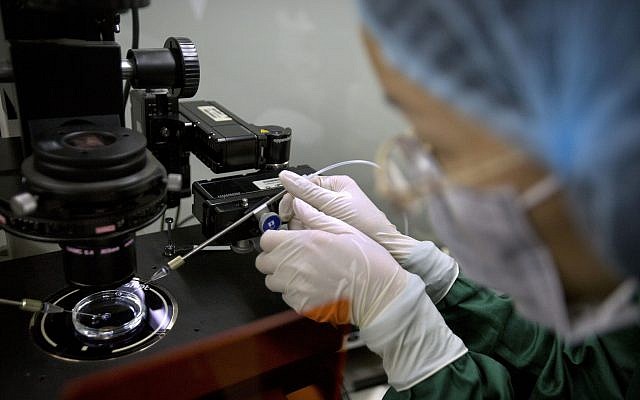Parents who were erroneously provided the wrong embryo at a Rishon Lezion hospital are planning to sue the institution for NIS 10 million ($2.9m) over the mishap, according to a report Monday night.
Channel 12 said the lawsuit will focus on alleged negligence at Assuta Rishon Lezion’s fertility clinic as well as the distress caused to the couple.
The mother gave birth to the child in late October, shortly after revelations of the mix-up sparked a national media firestorm.
The Health Ministry initially sought to find the child’s biological parents, but after one couple singled out as the most likely parents was ruled out by tests, officials announced late last month that they would halt the search.
The parents who carried the baby have said they want to keep it and have vowed to fight any attempt to strip them of custody.
Get The Times of Israel's Daily Edition by email and never miss our top stories
According to Channel 12, six couples who suspect the child may be biologically theirs have appealed to a court to force genetic testing of the baby.

Illustrative: In this October 9, 2018, photo, Zhou Xiaoqin installs a fine glass pipette into a sperm injection microscope in preparation for injecting embryos with Cas9 protein and PCSK9 sgRNA at a lab in Shenzhen in southern China’s Guandong province. (AP Photo/Mark Schiefelbein)
The Health Ministry considered shuttering the IVF unit at Assuta following the error but eventually decided not to do so. However, it demanded that the department trim its operations by 50 percent — from 10,000 fertilization treatments a year to 5,000.
“The price for the many people receiving treatment there would be too high [if it were closed],” Health Ministry Director Nachman Ash told reporters last week.
A former hospital employee anonymously claimed in September that she had witnessed several instances of neglect involving the handling of embryos while working at Assuta, a claim the hospital refused to respond to.
A week later, Assuta’s IVF laboratory manager said that a “certain percentage” of women who undergo in vitro fertilization all over the country carry an embryo that is not their own, though the hospital distanced itself from his claims.


